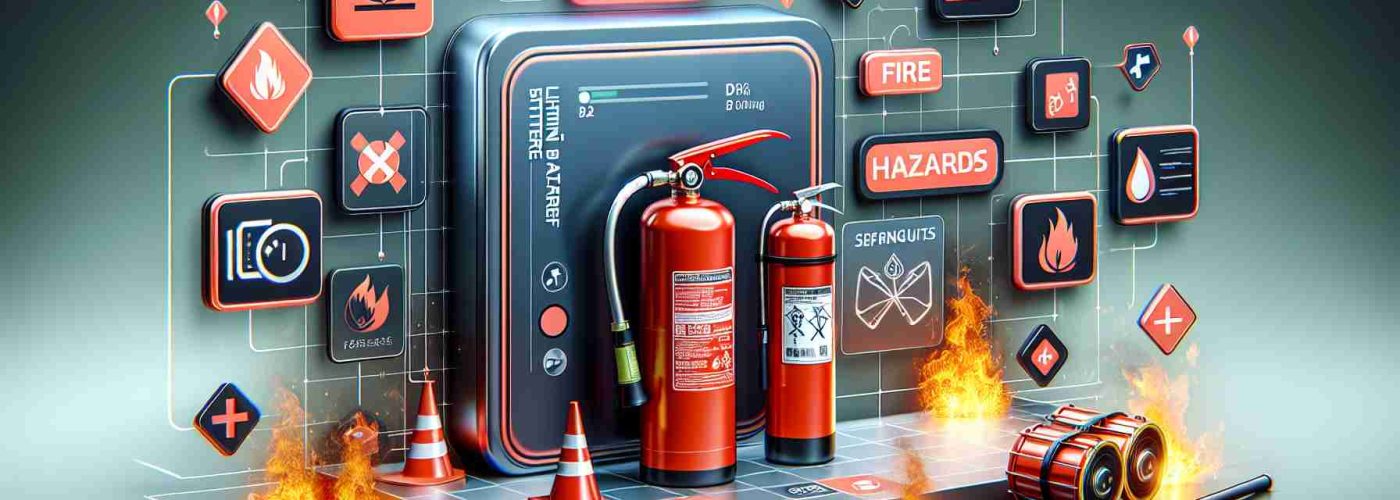As the use of lithium-ion batteries on construction sites increases, so does the need for effective fire safety measures to handle the unique challenges they present. Here, Daniel Robins, projects director at CheckFire, explores the increasing risk of lithium-ion battery fires and the appropriate safety measures construction managers need to take to ensure property and lives are protected.
With the proliferation of lithium-ion batteries in modern devices, the risk of fire incidents has become a pressing concern. This type of battery can power everything from smartphones and laptops to electric vehicles, and industrial equipment – including that found on construction sites, where rechargeable electric devices are commonly used and stored.In the UK, fire services responded to 46% more fires linked to lithium-ion batteries in 2023 compared to 2022. This surge underscores the urgency for construction sites to be adequately prepared to address these fires.
As set out in the Regulatory Reform (Fire Safety) Order 2005 (RRFSO), all responsible person(s) have a legal duty to provide and maintain satisfactory fire precautions – including the consideration of lithium-ion batteries in all fire risk assessments. Lithium-ion battery fires are typically caused by thermal runaway and catastrophic battery failure. Overcharging, overheating, physical damage, or internal malfunctions can all trigger these dangerous events. Once a battery ignites, the fire rapidly propagates across all the cells and results in explosion, causing significant property damage and posing serious risks to lives. To mitigate these risks, construction managers must implement robust fire safety protocols tailored to the unique nature of lithium-ion battery fires.
Implementing fire safety measures
First and foremost, staying up-to-date with the latest safety standards and regulations is essential. Construction managers should engage with fire safety experts to continually refine their protocols and ensure compliance with legal requirements. This proactive approach can help prevent incidents and minimise the impact of any fires that do occur.
There are an endless number of fire risks that could present on construction sites depending on what and where the project is. Regulation 29 of the Construction (Design and Management) Regulations 2015 (CDM) states: Suitable and sufficient steps must be taken to prevent, so far as is reasonably practicable, the risk of injury to a person during the carrying out of construction work arising from – (a) fire or explosion; (b) flooding; or (c) any substance liable to cause asphyxiation.
This requires the principal contractor to set reasonable safety measures to avoid the harm of those working onsite. For example, flammable materials should not be stored near an ignition source, appropriate fire extinguishers must be clearly visible and accessible, and high-risk tasks should be performed by a qualified person.
Each class of fire has to be tackled by a fire extinguisher specifically designed to address its unique causes and characteristics. Alongside putting out the flames, a lithium-ion battery fire extinguisher should be endothermic, drawing out the heat from the battery in order to halt thermal runaway in its infancy, preventing other cells from heating and exploding. This type of fire extinguisher should also boast high Class A ratings to help protect from any secondary fires that could be caused by the exploding battery.
Collaborating with local fire services
Finally, working closely with local fire services is crucial, as they can provide valuable insights and assistance in developing effective fire safety strategies. Regular consultations and drills can help ensure construction teams are prepared to respond swiftly and effectively in the event of a fire. And – as with any other setting – users of the area must all be made aware of plans and tasks should a fire break out. Everyone should be clear on escape routes, fire exits and assembly points. Emergency signage is crucial in helping people off the site and directing them to safety, and site workers should be aware of the location of fire extinguishers to aid their escape.
The increasing use of lithium-ion batteries on construction sites necessitates a proactive and informed approach to fire safety. By adhering to current safety standards, implementing specialised lithium-ion battery fire extinguishers, and collaborating with local fire services, construction organisations can protect both property and lives from the dangers associated with lithium-ion battery fires.
Recognising the fire industry’s need for specialist lithium-ion battery fire extinguishers. CheckFire, a leading specialist in fire safety solutions, launched its LFX range as part of its ‘The Green Range’ in 2024. These revolutionary fire extinguishers get to work instantly, removing a large amount of excessive heat, rapidly reducing the temperature, and cocooning the fuel of a lithium-ion battery fire in its infancy.
Building, Design & Construction Magazine | The Choice of Industry Professionals





